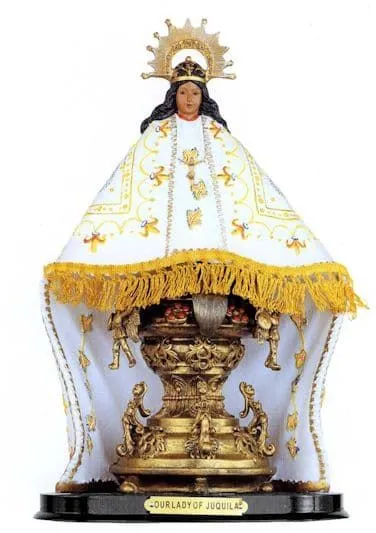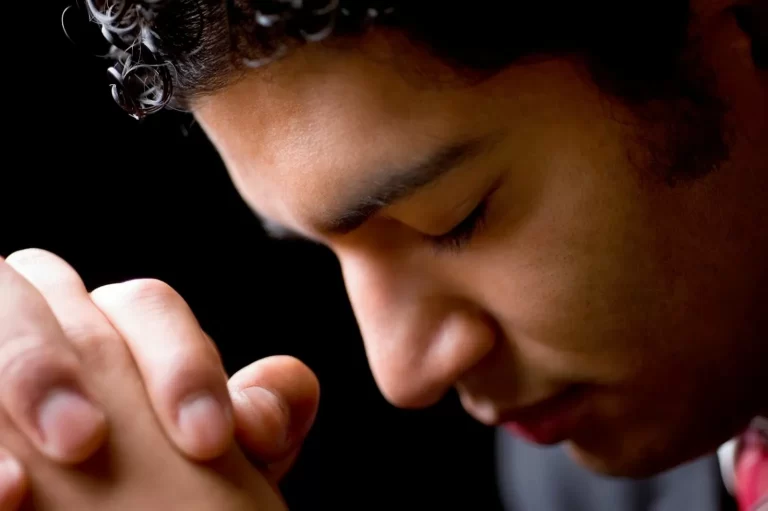The Christian Idea of Original Sin: What is it?
The term Original Sin is typical of the Christian faith and is referred to as the origin and cause of the existence of all sin. Original Sin exists since Adam and Eve disobeyed the divine mandate and allowed themselves to be tempted by the serpent and eat the fruit of the tree of the knowledge of good and evil. From then on it was bequeathed to all his offspring who have to carry that weight.
The original sin
The initial sin, also called ancient sin, is a Christian idea of the condition of guilt to which all humans are subject because of the fall or misfortune of man, which was generated by the contempt of Adam and Eve in the Garden of Eden , in other words, the transgressive sin of eating from the tree of the knowledge of good and evil.
This condition of sin would be transferred to all humans and would be based on the loss of initial holiness and justice, which Adam and Eve had at first, prior to feeding on the forbidden fruit. Now we know what original sin is .
In what does original sin consist ? The notion of original sin was first inferred in the 2nd century by Irenaeus, Bishop of Lyons, in his dispute with certain dualist Gnostics. Other ecclesiastical clerics such as Augustine of Hippo (354–430) similarly took up this doctrine, and they supported it in what was taught by Paul of Tarsus (Romans 5:12-21 and 1 Corinthians 15:21-22) and in the verse Psalms 51:5.
Tertullian, Cyprian, Ambrose and Ambrosiaster believed that humanity carries with it the sin of Adam, passed on from generation to generation. A very unique version was made by Martin Luther and John Calvin, who equated it with concupiscence or ambition which, according to their interpretation, would ruin free choice. In Catholicism, the Jansenist religious movement, which the Church declared heretical, also held that original sin suppressed free choice.
From the point of view of the Catholic Church, it is stated that «Baptism, conferring the life of Christ’s grace, abolishes original sin and returns man to God, but the effects for nature, diminished and prone to evil, last. in man and summon him to spiritual combat.” “Even exhausted and diminished by Adam’s misfortune, free will is not ruined in the race.” Regarding Protestantism, certain groups have different versions of original sin.
Original Sin in Christianity
The Catholic Christian ideology regarding original sin was established in the Council of Carthage and was further specified in the Council of Orange and the Council of Trent. The specifications of its current structure are already found in the texts of Saint Augustine of Hippo, through whom the idea of a basic decomposition of human nature had reached the Church. The few paragraphs of doctrine referring to original sin found in the texts of the Apostles (particularly Romans 5:12) do not make relevant precisions regarding the text of Genesis.
Scholastic theology differentiates between the originating initial sin (peccatum originale originans), the precise act of contempt perpetrated by Adam and Eve, and the originating initial sin (peccatum originale originatum), the effects that this lack would cause on the conformation of the human species. .
In the case of the peccatum originale originatum, not only would the preternatural qualities of immortality and the dispensation from suffering be wasted, but the powers of the human spirit, both moral and intellectual, would not have their natural energy, subjugating the will to outbursts and talent for error.
According to the doctrine established at the Council of Trent, the state of “fallen nature” (natura lapsa) is transferred to each of those born after the exile from Eden.
In such councils it was agreed that baptism abolishes original sin and returns man to God, but the effects for nature, diminished and prone to evil, endure in man and summon him to spiritual combat. The Catholic Church and others that carry out Marian worship, however, exempt the Virgin Mary from the results of original sin, given a particular grace from God so that Jesus Christ did not have original sin.
The Catholic Church
In the Universal Catechism, where the exposition of the faith, doctrine and morals of the Catholic Church is contained, the following is stated:
- Due to his fault, Adam, being the first man, lost his holiness and the original justice that he had obtained from God not only for himself, but for all humanity.
- Adam and Eve transferred to their offspring the human nature affected by their initial sin, thus deprived of sanctity and original justice. This dispossession is called “original sin.”
- As a result of original sin, human nature was diminished in its strength, subjugated to ignorance, pain and the prevalence of death, and prone to sin (propensity called “lust”).
Saint Anselm pointed out that «the fault of Adam was one thing but the sin of a child at birth is something different; the first was the cause, the second is the consequence.” The initial sin in an infant is different from the fault of Adam; is one of its results. The consequences of Adam’s sin according to the Catholic Encyclopedia are:
1.- Death and suffering.
2.- Concupiscence (or propensity to sin). Baptism removes original sin, but the inclination to sin remains.
3.- The lack of sanctifying grace in children who have just come into the world is also the result of the first sin, since Adam, having obtained holiness (or sanctifying favor) and justice from God, not only lost it himself, but for everyone. Baptism bestows original sanctifying grace, mislaid by Adam’s fault, thus removing original sin and any personal sin.
The catechism shows the doctrine of initial sin as the “obverse of salvation” (cf. CCC 389). We must remember that although this narration is elaborated based on images or is written using literary figures, it is a real event from the beginning of the story and that defines it (cf. CEC 390).
The Catholic Church has always held that “by Baptism, all sins are absolved, the initial sin and all particular sins” since baptism grants the original sanctifying grace, which had been lost by the sin of Adam, suppressing thus original sin and individual sins.
Although inherent in each one the initial sin does not have, in any successor of Adam, a nature of personal fault. The initial sin is the dispossession of sanctity and original justice.
Subsequently, between numbers 396 and 409, he examines the various elements linked to this sin: The evidence involved in not being able to feed on the tree of the knowledge of good and evil as an indication of the limit that the freedom of men holds by the fact of being a creature and the sin exhibited as an act of apprehension first and contempt later.
The results of this: losing the original holiness, the peace of the world and of the interior of man is ruined, death enters history.
The generality of the punishment from the initial sin is supported by writings taken from Saint Paul:
Just as the fault of one alone brought condemnation upon all men, so the work of righteousness of one alone (that of Christ) provides all with an excuse that bestows life. For the contempt of one man, all were made sinners
Rm 5, 18-19
In number 404 it is pointed out that the fault of Adam is the sin of all humanity subsequent to him, since, according to a statement by Thomas Aquinas, all men are in Adam as the body of a single man. This being the case, the catechism assures that the transfer of that sin is an enigma, and that, therefore, the word “sin” is used in an analogous way, since it is not a question of an “incurred” fault, but of a sin “acquired”.
Heretical Condemnations
The negationist doctrine of Pelagius or Pelagianism, which repudiates the unfortunate condition of human nature as a Manichean decomposition of the Christian faith, was proclaimed heretical at the Council of Carthage; The first follower of this doctrine to whom reference is made was Theodore of Mopsuestia, although his influence was more relevant in the Western Church through Pelagius and Celestius.
According to the Pelagians, Adam’s incorporation of sin is restricted to setting a bad example for his successors, but does not harm his faculties.
Original Sin in Protestantism
The leaders of the Reformation accepted the doctrine of original sin, but today there are certain Protestant groups that are no longer believers in original sin influenced by the Socinian belief of the reformer Fausto Socino.
Apocryphal Books
The book “4 Esdras” supposedly written by a Jew in the first century shows Adam as the author of the misfortune of the human race:
Oh Adam, what have you provoked? Although it was you who was missing, the misfortune was not only yours, but also ours who are your children. ─ 4 Esdras 7:48
and to Adam as the one who transferred to all his offspring the lasting sickness, wickedness, and evil seed of sin:
Since the first Adam, bearer of an evil heart, disobeyed and was defeated, as were all those who came from him. Thus, the disease became long lasting; the law was in the hearts of the people together at the root of evil, but what was benevolent left, and evil remained. ─ 4 Esdras 3:21-22
For an evil seed grain was cultivated in Adam’s heart from the beginning, and how much ungodliness it has caused up to now, and will generate until the threshing time comes! ─ 4 Esdras 4:30
Original Sin in Judaism
The reference to original sin in the Bible appears in Genesis 1-3. After the creation of Adam and Eve, they lived in the Garden of Eden in perfect peace with God; the only precept they had to accept was to refrain from eating from the tree of the knowledge of good and evil, the consumption of which would produce death (Genesis 2:17).
However, Eve and, through her mediation, Adam yielded to the temptation of the serpent (which is identified with Satan or Shaitan, “the tempter”) and revealed, by eating from the tree, their nakedness. The result of the violation of her commandment led to death — “[You shall return] to the land, since from it you were taken; for you are dust, and to dust you shall return” (Genesis 3:19) and the banishment from the Garden of Eden.
Talmudic custom records this act as החטא הקדמון (Hebrew hajet hakadmon, “the original fault”) of contempt of the divine order.
However, the results of this sin are reduced to personal punishments, such as banishment from paradise, labor pain in the case of Eve and all her offspring, the exaggerated multiplication of the difficulty of the work (not the work itself). itself, which is previously outlined as a divine gift and preceded sin itself), suffering, old age and death.
The reforming tendencies within Judaism interpret misfortune as the first act of man’s free choice, and consider it as part of God’s plan, since the fault would symbolize the acceptance of responsibility; what it means, the myth of misfortune would be an elaborate metaphor of the passage to adulthood and independence.
There is controversy among Jewish theologians as to the cause of what is called “original sin.” Some indoctrinate that it was because of Adam’s surrender to the temptation to feed on the forbidden fruit and was bequeathed to his descendants; most, however, do not hold Adam guilty of the faults of humanity, but according to Genesis 8:21 and Genesis 6:5-8 God admitted that Adam’s sins were his alone.
However, others are of the idea that this brought death to the world; for because of their sin, their children live a mortal existence that ends with the death of their bodies. The doctrine of “begotten sin” is absent from most traditional Judaism.
Although some Orthodox Jews blame Adam for the general decomposition of the world, and although there were some Jewish teachers of the Talmudic era who considered that death was a penalty brought to mankind because of Adam’s fault, that is not the case. the prevailing position in Judaism today.
Modern Jewish teachings generally state that humans come into the world sinless and pure and subsequently choose to sin bringing suffering into their lives. The notion of legacy sin does not exist under any guise in Islam.
What is the original sin?
What is sin ? Why does sin exist? On what date did it occur? What are your results in the world? How is original sin eradicated? What is original sin for children ? Despite sin, is man still loved by God? Could man stop sinning by his own will? Here we leave these questions whose answers are found in the Catechism of the Catholic Church and in various works by José María Escrivá.
With the narration of the divine contempt of not eating the fruit of the forbidden tree, at the incitement of the serpent (Gn 3,1-13), Sacred Scripture tells us that our initial parents revolted against God, surrendering to the temptation of wanting be like deities.
Man, under the temptation of the devil, allowed his hope in his creator to perish in his heart (cf. Gen 3:1-11) and, abusing his freedom, he violated the divine commandment. This is what the first sin of man was about (cf. Rom 5,19). From then on, any fault will be taken as disobedience to God and distrust in his goodness. (Catechism of the Catholic Church, 397).
When Did Original Sin Happen?
Scripture exposes us the tragic consequences of this first contempt. With this, Adam and Eve have immediately lost the favor of their original holiness (cf. Rom 3:23). They are fearful of God (cf. Gn 3,9-10) from whom they have inferred an inaccurate image, that of a God envious of his privileges (cf. Gn 3,5). (Catechism of the Catholic Church, 399)
The unity they formed, established thanks to the initial justice in which God created man, is destroyed; the control of the spiritual qualities of the soul over the body breaks down (cf. Gn 3,7); the covenant between man and woman is subject to tensions (cf. Gen 3:11-13); their bonds will be determined by yearning and domination (cf. Gn 3,16).
The balance with creation is fractured; creation made real becomes rare and harmful for man (cf. Gn 3,17.19). Because of man, creation is reduced “to serving corruption” (Rom 8:21). In the end, the result expressly announced for the case of contempt (cf. Gn 2,17), will be a reality: man “will return to the dust from which he was made” (Gn 3,19). Death makes its entry into human history (cf. Rm 5,12). (Catechism of the Catholic Church, 400)
And what is it that hinders this modesty, this good vainness? Arrogance. That is the main sin that leads to evil puffing up. Arrogance leads us to imitate, perhaps in the simplest matters, the allusion that Satan exhibited to our initial parents: their eyes will open and they will be like God, knowing good and evil. It can also be read in Scripture that the principle of arrogance is to distance oneself from God.
Since this vice, once rooted, has to influence all of human existence, until it becomes what Saint John calls superbia vitæ, arrogance of life. Arrogance? About what? Holy Scripture brings together situations, unfortunate and comical at the same time, to point out arrogance: what do you boast about, dust and ashes? Already in life you regurgitate your entrails. A slight illness: the doctor laughs. The man who is sovereign today will be dead tomorrow. (Friends of God, 99). On the path of modesty you go anywhere…essentially to Heaven. (Furrow, 282).
Why does Sin exist?
God formed man in his image and gave him a place in his friendship. Being spiritual, man can only carry this friendship in the form of sincere submission to God. This is what manifests the prohibition made to man to eat from the tree of the wisdom of good and evil, “because the day you eat of it, you will perish irremediably” (Gn 2,17).
“The tree of the wisdom of good and evil” symbolically refers to the insurmountable frontier that man as a creature must freely recognize and consider with confidence. Man is subordinate to the Creator, he is subject to the laws of Creation and the moral rules that regulate the use of freedom. (Catechism of the Catholic Church, 396)
Man, under the temptation of the devil, allowed his hope in his creator to perish in his heart (cf. Gn 3:1-11) and, abusing his freedom, he violated the divine commandment. This is what the first sin of man was about (cf. Rom 5,19). From then on, any fault will be taken as disobedience to God and distrust in his goodness. (Catechism of the Catholic Church, 397)
By loving freedom, we bind ourselves. Only arrogance supposes those ties as heavy as a chain. Authentic modesty, which is taught to us by one who is docile and humble of heart, shows us that his yoke is delicate and his burden light: since his yoke makes us free, loved, united and gives us life, all that He He won us at the Cross. (Friends of God, 31)
Our Holy Mother the Church has always manifested herself for freedom, and has repudiated all pessimism, old and less old. She has indicated that each soul is the owner of its destiny, for better or for worse: and those who were always on the side of good, eternal life awaits them, but for those who committed evil, perpetual fire.
It is common for us to be impressed by this enormous aptitude of yours and mine, of all of us, which in turn reveals the sign of our nobility. To such an extent sin is a voluntary evil, that it would not be so if it did not have its birth in the will: this assertion is so evident that the few scholars and the numerous ignorant people who populate the world agree.
Again I raise my heart to give thanks to my God, to my Lord, since nothing prevented him from having made us faultless, with an uncontrollable impulse towards good, but he considered that his servants would be better if they served him freely. (Friends of God, 33). God created man from the very beginning and left him on his own account (Ecclo XV, 14). This would not have happened if he did not have freedom of choice.
We have the responsibility before God of all the acts that we carry out freely. There is no place here for anonymity; man stands before the Lord, and depends solely on himself to decide whether he is friend or foe. This is how the path of internal struggle begins, which is a commitment for life, since as long as our walk on earth lasts, there is no one who has achieved full freedom. (Friends of God, 36)
Is Original Sin a Conviction, what consequences does it have in the World?
St. Paul assures us: «Because of the contempt of just one man, all were marked as sinners» (Rom 5,19): «It was because of just one man that sin made presence in the world and for that lack death, and so on. the latter reached all humans, because they were all sinners…” (Rm 5,12).
To the generality of sin and death, the apostle opposes the generality of redemption in Christ: “As the fault of one alone brought condemnation on all men, so also the work of justice of one alone (that of Christ) provides everyone with an excuse that gives life» (Rm 5,18). (Catechism of the Catholic Church, 402).
Following St. Paul, the Church has always indoctrinated that the enormous misery that subjugates men and their propensity to evil and death are not understandable without their connection with Adam’s sin and with the circumstance that he has transferred a sin to us. with which we all come to the world afflicted and that is “death of the soul” (Council of Trent: DS 1512). (Catechism of the Catholic Church, 403)
The world is benevolent; it was Adam’s fault that broke the divine peace of creation, but God the Father has sent his only begotten Son to restore that peace. In such a way that we, made adopted children, could liberate the creation from chaos, appease all things with the Lord. (Christ Is Passing By, 112)
He has saved him from sin, from the fault of Adam, who fell down on all his offspring, and from the particular sins of each one, and he longs to live in our soul: whoever adores me will contemplate my doctrine and my Father will adore him. , and we will come to him and form a mansion within him. (He Is Christ Passing By, 84)
How immense is the love, the commiseration of our Father! Faced with these realities of his divine eccentricities for his children, I would like to have a thousand mouths, a thousand hearts, more, that would enable me to live in constant praise of God the Father, God the Son, God the Holy Spirit. Think that the Almighty, who with his Providence governs the Universe, does not yearn for forced servants, he chooses free children.
He has introduced into the soul of all of us, even though we come into the world proni ad peccatum, with a propensity to sin, due to the misfortune of the initial partner, a spark of his unlimited talent, the attraction of the good, a desire for lasting peace. And it leads us to understand that truth, joy and freedom are achieved when we try to make that seed of perpetual life grow within us. (Friends of God, 33).
Why are we all implicated in Adam’s Sin?
The totality of men is responsible for the sin of Adam, just as all are responsible for the righteousness of Christ. However, the transfer of original sin is an enigma that we cannot fully understand.
But we know from Revelation that Adam had obtained the initial holiness and justice not only for himself but for the entire human race: by giving in to the tempter, Adam and Eve incur a personal sin, but this fault affects the entire human race, which they will transfer into a state of disgrace (cf. Council of Trent: DS 1511-1512).
It is a lack that will be transferred by diffusion to the entire human race, that is, by the transfer of a particular human nature from initial holiness and justice. For this reason, original sin is called “sin” in an analogous way: it is a fault “contracted”, “not committed”, a condition and not an act. (Catechism of the Catholic Church, 404). It shouldn’t be strange. We carry in ourselves, the result of nature in disgrace, a principle of opposition, of resistance to grace: they are the injuries of original sin, exacerbated by our personal faults.
Therefore, we must understand those ascents, those divine and human tasks, those of every day, which usually converge in the Love of God, with modesty, with a sorrowful heart, trusting in divine help, and allocating our best efforts as if everything depended on oneself. (Friends of God, 214)
The God of our creed is not an isolated being, who indolently observes the fortune of men: their efforts, their struggles, their restlessness. He is a Father who adores his children to the point of referring to the Word, Second Person of the Most Holy Trinity, so that, by becoming incarnate, he perishes for us and saves us. The same loving Father who now gently draws us to Himself, through the action of the Holy Spirit who dwells in our hearts. (He Is Christ Passing By, 84).
How is Original Sin Erased?
“At the moment in which we make our first confession of faith, when we obtain the holy Baptism that purifies us, the forgiveness that we obtain is so complete and so complete that there is absolutely nothing left for us to suppress, be it from the original fault, be it of any other perpetrated or omitted by our own will, nor any penalty to suffer to expiate them.
However, the grace of Baptism does not free a person from all the frailties of nature. In contrast […] even we have to combat the movements of ambition that do not cease to lead us to evil» (Roman Catechism, 1, 11, 3). (Catechism of the Catholic Church, 978)
The Church consecrates us, after entering her bosom through Baptism. Newcomers to natural life, we can already take refuge in sanctifying grace. The belief of one, nay, the belief of the whole Church, is of benefit to the child by the acts of the Holy Spirit, who grants unity to the Church and notifies the benefits of one to another (St. Thomas, S. Th. III, q.68, a.9 ad 2).
It is a miracle that superhuman maternity of the Church, which the Holy Spirit grants her. The spiritual renewal, which occurs with Baptism, is in some way similar to bodily birth: just as babies who are in their mother’s womb are not able to eat for themselves, but are nourished by what the mother contributes.
Likewise, infants who lack the use of reason and find themselves as babies in the bosom of their Mother the Church, by the acts of the Church and not by themselves obtain salvation (St. Thomas, S. Th. III, q. 68, a.9 ad 1). (Love the Church, 31)
I would like us to reflect now on that spring of divine grace in the Sacraments, a prodigious expression of God’s commiseration: certain sensible indications that cause grace, and simultaneously declare it, as if placing it in front of the eyes. God Our Lord is eternal, his love is endless, his compassion and his pity with us have no limits.
And, although he grants us his grace in numerous other ways, he has expressly and freely established, only he could achieve it, these seven efficient signs, so that in a stable, simple and accessible way for all, men can be participants in the Salvation merits. (Christ Is Passing By, 78)
Why after Baptism do we sin again?
In following St. Paul, the Church has always shown that the enormous misery that subjugates men and their propensity to evil and death are incomprehensible without their connection with Adam’s sin and with the fact that he has transferred a sin to us. with which we all come to the world afflicted and that is “death of the soul” (Council of Trent: DS 1512).
For this evidence of faith, the Church grants Baptism for the forgiveness of sins even to children who have not incurred personal sin (cf. ibid., DS 1514). (Catechism of the Catholic Church, 403). Although it is particular to each one (cf. ibid., DS 1513), the initial sin does not have, in any descendant of Adam, a condition of personal fault.
It is the expropriation of initial sanctity and justice, but human nature is not completely corrupted: it is damaged in its own natural forces, reduced to ignorance, suffering and the supremacy of death and prone to sin (this propensity evil is called “ambition”).
Baptism, conferring the life of Christ’s grace, abolishes original sin and returns man to God, but the results for nature, diminished and prone to evil, remain in man and summon him to spiritual warfare. (Catechism of the Catholic Church, 405)
As long as we fight, a fight that will continue until death, do not exclude the possibility that violent adversaries from outside and within will rise up. And as if that ballast were not enough, on occasions the errors incurred, perhaps numerous, agglomerate in your mind. I point it out to you in the name of God: do not be impatient.
When that happens, which is not required to happen; nor will it be the usual, transform that opportunity into a reason to unite more with the Lord; since He, who has chosen you as his son, will not forsake you. He accepts the test, so that you adore more and get more clearly his constant protection, his Love (Friends of God, 214).
The world, the devil and the flesh are opportunists who, taking advantage of the fragility of the savage that you carry within, wish that, for the poor eyeglass of a worthless pleasure, you would give them fine gold and pearls and gems and rubies impregnated with the living and saving blood of your God, which are the value and treasure of your perpetuity. (Road, 708). The devil must seem clumsy!, you told me. I don’t understand how stupid he is: always the same lies, the same tricks…
– You are absolutely right. But men are usually less intelligent, and we are not capable of punishing others’ heads… And Satan has all this available to provoke us. (Groove, 150)
Despite Sin, does God still love man?
After the misfortune, man was not forsaken by God. In contrast, God summons him (cf. Gn 3,9) and enigmatically warns him of the triumph over evil and the resurgence of his misfortune (cf. Gn 3,15). This episode of Genesis has been called “Protoevangelium”, for being the first warning of the Messiah Savior, warning of a combat between the serpent and the Woman, and of the final triumph of a successor of the latter. (Catechism of the Catholic Church, 410).
However, God is Love. The abyss of evil, which sin brings with it, has been redeemed by an unlimited Charity. God does not forsake men. The divine purposes predict that, to amend our faults, to restore the lost unity, the sacrifices of the Old Law are not enough: the offering of a Man who was God was required.
It can be imagined, to approach this unfathomable enigma in some way, that the Blessed Trinity gathers in council, in its constant intimate bond of great love and, as an effect of that eternal resolution, the Only Son of God the Father contracts our human quality , brings upon himself our misfortunes and our afflictions, to end up nailed to a tree. (Christ Is Passing By, 95)
When it is said that Jesus Christ conquered sin
Christian custom sees in this episode a warning from the “new Adam” (cf. 1 Cor 15:21-22.45) who, by his “submission to the point of dying on the Cross” (Phil 2,8) makes up for Adam’s contempt to a great extent ( see Romans 5:19-20). On the other hand, many Fathers and Doctors of the Church observe in the woman predicted in the “protoevangelium” the mother of Christ, Mary, as “new Eve” .
She has become the first and perhaps only beneficiary of the triumph over sin achieved by Christ: she was protected from all stains of original sin (cf. Pius IX: Bull Ineffabilis Deus: DS 2803) and, through her earthly life, by a specific favor of God, he did not incur in any type of sin (cf. Council of Trent: DS 1573). (Catechism of the Catholic Church, 411)
Liberation and redemption. Through his venerable Cross, Christ achieved redemption for all mankind. He freed them from the sin that had reduced them to slavery. “That we might be free, Christ set us free” (Gal 5,1). In Him we are part of “the truth that gives us freedom” (Jn 8:32).
The Holy Spirit has been given to us, and, as the apostle points out, “where the Spirit is, there is freedom” (2 Cor 3:17). From now on we boast of the “freedom of the children of the Lord” (Rm 8,21). (Catechism of the Catholic Church, 1741)
The altruistic dedication of Christ is confronted with sin, that truth that is hard to admit, but unquestionable: the mysterium iniquitatis, the incomprehensible malice of the creature that rises up, out of arrogance, against God. History is as ancient as Humanity itself. We have to remember the misfortune of our initial parents; then, all that series of perversions that mark the walk of men, and finally, our particular rebellions.
It is not easy to assess the depravity that sin implies, and to understand everything that faith shows us. We have to take charge, even in the human, that the measure of the insult is measured by the state of the offended, by his personal merit, by his social honor, by his aptitudes. And man insults God: the creature betrays his Creator. (Christ Is Passing By, 95)
For redeeming man, Lord, you perish on the Cross; and, nevertheless, for a single mortal sin, you sentence man to an unhappy perpetuity of torture…: how much sin insults you, and how much I must abhor it! (The Forge, 1002).
Can Man with his own strength come out of Sin?
Baptism grants the one who accepts it the favor of purification from all faults. But the one who receives baptism must continue fighting against the ambition of the flesh and inordinate desires. With the favor of God he reaches it. (Catechism of the Catholic Church, 2520).
The experience of our fragility and our errors, the deconstruction that can be generated by the pitiful spectacle of the small or even petty of some who call themselves Christians, the feigned failure or the forgetfulness of some apostolic enterprises, all of this, corroborating the existence of the sin and human limits, can nonetheless challenge our faith, and cause temptation and hesitation to manifest.
Where are divine strength and power? It is time to react, to put our hope into practice in a purer and more rigorous way and, therefore, to try to make our loyalty more solid. (Christ Is Passing By, 128)
Saint Peter wrote: through Jesus Christ, the Lord has given us the immense and precious graces that he had offered, to make us part of the nature of God (2 Pet I, 4). Making ourselves divine does not mean that we separate ourselves from our humanity… Men, yes, but with fear of serious sin. Men who abhor venial faults, and who, if they live their fragility every day, also know the strength of God.
That way nothing can stop us: not human considerations, not passions, not this flesh that revolts because we’re rascals, not arrogance, not… loneliness. A Christian is never alone. If you feel helpless, it is because you do not want to look at that Christ who passes by so close… perhaps with the Cross. (Via Crucis, 6.3).
When I offend God, how does He forgive me?
In this battle against the proclivity to evil, who will be brave and cautious enough to avoid every wound of sin? «Since it was required that, in addition to the sacrament of baptism, the Church had the authority to absolve sins, the keys of the Kingdom of heaven were entrusted to her, with which she could grant forgiveness for the faults of any sinner, even if he sinned until the end of his life» (Roman Catechism, 1, 11, 4). (Catechism of the Catholic Church, 979)
Through the sacrament of Penance, whoever receives baptism can reconcile with God and with the Church: “The Fathers were quite right in calling penance “a laborious baptism” (St. Gregory of Nazianzus, Oratio 39, 17). For those who have been disgraced after Baptism, this sacrament of Penance is required for redemption, as is Baptism for those who have not yet been reformed» (Council of Trent: DS 1672). (Catechism of the Catholic Church, 980)
You must not forget, son, that for you, here below, there is only one evil, which you must fear and avoid with divine grace: sin. (Road, 386). Back to your old follies!… And then, when you return, you notice yourself with little joy, since you lack humility. It seems you are obstinate in ignoring the second part of the allegory of the prodigal son, and you are still attached to the poor happiness of acorns. Arrogantly hurt by your weakness, you have not decided to ask for forgiveness, and you do not weigh that, if you humiliate yourself, the joyful reception of your Father God awaits you, the party for your return and for your restart. (Groove, 65)
How can sin be avoided?
The Holy Spirit allows us to distinguish between the test, required for the development of the inner man (cf. Lk 8, 13-15; Acts 14, 22; 2 Tm 3, 12) in precept to a “proven virtue” (Rm 5, 3 -5), and the temptation that leads to sin and death (cf Jas 1, 14-15). Likewise, we must differentiate between “being tempted” and “accepting” the temptation.
And finally, good sense reveals the lie of temptation: supposedly its purpose is “benevolent, seductive to the eyes, desirable” (Gn 3, 6), while, certainly, its product is death. (Catechism of the Catholic Church, 2847).
“Do not give in to temptation” presupposes a decision of the heart: “Because where your treasure is, there you will also find your heart […] No one can be the servant of two masters” (Mt 6, 21-24). “If we live according to the Spirit, let us act according to him” (Gal 5, 25).
The Father provides us with the strength to “let ourselves be carried away” by the Holy Spirit. “You have not suffered temptation greater than human measure. And loyal is God who does not allow you to be tempted on your strength. Rather, with temptation he will give you a way to resist it successfully” (1 Cor 10, 13). (Catechism of the Catholic Church, 2848)
Let us strive so that on our side not even a shadow of falsehood is exhibited. The initial requirement to expel that evil that the Lord harshly sanctions, is to try to act with the diaphanous, usual and current disposition of opposition to sin.
Vigorously, frankly, we must estimate, in our hearts and minds, fear of serious sin. And equally, it must be our position, deeply rooted, of abhorring intentional venial sin, of those condescensions that do not deprive us of divine grace, but make weak the channels through which it has to reach us. (Friends of God, 243)







